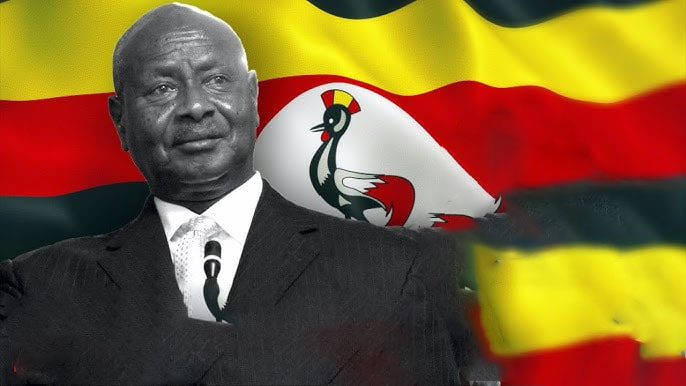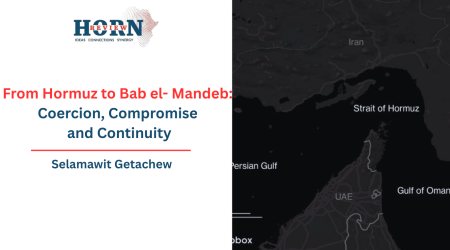
15
Sep
The Muted Verdict: Uganda’s Silence And The Shifting Currents Of The Nile
Egypt’s Isolation and the Rising Tide of Ethiopian Diplomacy
As Egypt and Sudan reject the involvement of other Nile Basin countries in negotiations over the Grand Ethiopian Renaissance Dam ,Uganda ,a key upstream nation remains conspicuously quiet. This silence is not diplomatic restraint but a strategy, reflecting a broader regional realignment that has left Egypt diplomatically outsmarted and emotionally isolated. Ethiopia, meanwhile, proceeds with the inauguration of its monumental dam, leveraging its sovereign rights over the Blue Nile with a confidence that has reduced Egypt’s protests to a solitary cry against an inevitable new reality.
Egypt’s insistence on limiting GERD negotiations to the tripartite framework Egypt, Sudan, and Ethiopia is a rearguard action to preserve colonial era hydro-hegemony. The September 2025 joint communiqué from Cairo, which decries Ethiopia’s unilateral steps as a continuous threat to stability, is a testament to Egypt’s desperation to retain control over a hydrological order that is already obsolete. By rejecting the inclusion of other Nile Basin states, Egypt seeks to avoid the collective bargaining power of upstream nations, which overwhelmingly support the Cooperative Framework Agreement ,a modern legal instrument that promotes equitable water sharing and rejects the anachronistic 1929 and 1959 treaties.
However, this tactic has backfired. Ethiopia’s decade long diplomatic campaign, characterized by transparency pledges and regional solidarity, has effectively neutralized Egypt’s historical veto power. While Egypt clings to the rhetoric of existential threats, Ethiopia has mobilized African nationalism, framing the GERD as a symbol of continental self-reliance and a challenge to out dated riparian hierarchies. The dam, funded overwhelmingly by Ethiopian citizens through bonds and donations, shows a form of developmental sovereignty that transcends diplomatic wrangling.
Uganda’s refusal to explicitly endorse Egypt’s position during this critical period is a diplomatic tenstion. Historically, Uganda has supported the CFA and broader regional cooperation, recognizing that the Nile’s waters are a shared resource rather than an Egyptian birth right. President Yoweri Museveni’s earlier calls for amicable solutions that prioritize the global needs of all Nile Basin countries reveal a preference for multilateralism over Egypt’s zero sum hydro politics .
By withholding explicit comments on the tripartite framework, Uganda avoids alienating Ethiopia,a key regional ally while subtly challenging Egypt’s isolationist stance. This silence is a form of diplomatic resistance, signaling that Egypt cannot take upstream support for granted. Ethiopia has outfoxed Egypt on the diplomatic stage, and Uganda’s non alignment confirms that the Nile Basin’s geopolitical center of gravity is shifting eastward.
Ethiopia’s completion of the GERD represents a shift in the Nile Basin’s power dynamics. With a reservoir capacity of 74 billion cubic meters and an installed capacity of 5.15 gigawatts, the dam is not an infrastructure project but a geopolitical statement, Ethiopia will no longer acquiesce to a hydrological status quo that privileges downstream nations at the expense of its own development.
Ethiopia by inviting international experts to review the dam’s impacts while simultaneously proceeding with construction, Ethiopia has exposed the fragility of Egypt’s claims. The GERD’s filling phases, conducted without formal approval from downstream states, demonstrate that Ethiopia operates from a position of strength, not concession.
Egypt’s response to Ethiopia’s rise has been characterized by rhetorical escalation and strategic diminishment. Threats of military action, warnings of water wars, and attempts to internationalize the dispute through the Arab League have yielded little beyond symbolic support. Even the United States, historically a key ally, has failed to broker a compromise, with Ethiopia rejecting perceived U.S. bias toward Egypt.
The fundamental irony is that Egypt’s isolation is self inflicted. By refusing to ratify the CFA and dismissing upstream nations’ concerns, Egypt has alienated potential allies in the Nile Basin Initiative. Its recent diplomatic outreach to Uganda, Kenya, and others aimed at rallying support against Ethiopia has produced no tangible shift in regional alignment.
The GERD’s inauguration marks the end of an era defined by Egyptian hydro-dominance and the beginning of a new, multipolar Nile Basin. Ethiopia’s success lies not only in its engineering prowess but in its ability to reframe the discourse from historical rights to shared benefits.The dam will regulate floods, reduce sedimentation, and provide electricity to millions, potentially transforming Eastern Africa’s energy economy.
Egypt’s choice is adapt to the new reality or risk perpetual irrelevance. Desalination projects, agricultural efficiency, and cooperative management of the Nile’s flow offer pathways to water security, but these require abandoning the rhetoric of victimhood. Uganda’s silence is not indifference but a verdict. It confirms that Egypt’s cries in a diplomatic vacuum, while Ethiopia’s dam rises as a monument to African agency. The Nile’s waters, once claimed exclusively by Pharaohs, now flow toward a more equitable future and Egypt’s refusal to join this symphony only ensures it will be left behind. In the grand hydraulic game of the Nile, Ethiopia has not just built a dam, it has rewritten the rules.
By Samiya Mohammed, Researcher, Horn Review
REFERENCES
- Ethiopia outfoxes Egypt over Nile waters with its mighty dam. https://www.bbc.com/news/articles/cz71zndj001o
- Diplomacy.edu. The Grand Ethiopian Renaissance Dam as a test case for 21st-century energy diplomacy https://www.diplomacy.edu/blog/the-grand-ethiopian-renaissance-dam-as-a-test-case-for-21st-century-energy-diplomacy/
- Addis Standard. Egypt, Sudan reject other Nile Basin countries’ involvement in GERD talks, insist tripartite negotiations only. https://addisstandard.com/egypt-sudan-reject-other-nile-basin-countries-involvement-in-gerd-talks-insist-tripartite-negotiations-only/
- Brookings Institution. The controversy over the Grand Ethiopian Renaissance Dam. https://www.brookings.edu/articles/the-controversy-over-the-grand-ethiopian-renaissance-dam/
- Security in Context. Traces of Great Power Competition in the Nile Basin: Evidence from media depiction of the Grand Ethiopian Renaissance Dam . https://www.securityincontext.org/posts/traces-of-great-power-competition-in-the-nile-basin-evidence-from-media-depiction-of-the-grand-ethiopian-renaissance-dam-gerd
- Addis Standard. Egypt renews ‘water security’ fears in Uganda as Ethiopia readies to inaugurate Renaissance Dam. https://addisstandard.com/egypt-renews-water-security-fears-in-uganda-as-ethiopia-readies-to-inaugurate-renaissance-dam/
- Climate Diplomacy. Security implications of growing water scarcity in Egypt. https://climate-diplomacy.org/case-studies/security-implications-growing-water-scarcity-egypt
- Smart Water Magazine. Desalination: a promising solution for Egypt’s water crisis. from https://smartwatermagazine.com/blogs/amr-abd-el-rhman-abdullah/desalination-a-promising-solution-egypts-water-crisis
- Fanack WaterDesalination in the Gulf: A double-edged sword for water security. Retrieved from https://water.fanack.com/gulf-desalination-water-security










